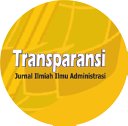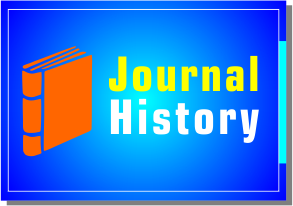Kegagalan Elektoral PPP Dalam Pemilu 2024 : Analisis Propaganda Politik Dan Pemasaran Berdasarkan Citra Partai Dan Demografi Pemilih
DOI:
https://doi.org/10.31334/transparansi.v8i1.4794Keywords:
PPP, 2024 Election, political propaganda, party image, young generation, digital campaign, political branding, Islamic party, voter behavior.Abstract
The United Development Party (PPP), as one of the oldest Islamic parties in Indonesia, experienced electoral failure in the 2024 Election by failing to pass the 4% parliamentary threshold, only winning 3.87% of the national vote. This study aims to analyze the factors of PPP's failure by focusing on two main aspects: political propaganda and image marketing (political branding). A qualitative approach with case studies is used to examine the mismatch between PPP's traditional image and the demographic characteristics of young voters who dominate the election. The findings show that PPP's failure was triggered by the party's inability to adapt its political communication strategy to social and technological changes. PPP still relies on classical religious symbolism and conventional campaigns that are ineffective in reaching millennial and Gen Z voters who are more critical, pragmatic, and digital-oriented. Weak digital marketing, the absence of young figures, internal conflicts, and the lack of synchronization of ideological narratives with contemporary issues such as the digital economy and social justice have also worsened the party's political performance. The conclusion of this study emphasizes the need for structural reform, ideological rebranding, and adaptation of communication strategies to restore PPP's political relevance amidst the ever-changing landscape of digital democracy.References
Komisi Pemilihan Umum (KPU). (2019). Hasil Resmi Pemilu 2019. Jakarta: KPU RI.
Kompas. (2024). “PPP Gagal ke Parlemen, Hanya Kantongi 3,87% Suara.†Kompas.com, 5 Maret 2024.
Komisi Pemilihan Umum (KPU). (2023). Data Pemilih Pemilu 2024. Jakarta: KPU.
BPS. (2023). Proyeksi Penduduk Indonesia 2020–2045. Jakarta: Badan Pusat Statistik.
Lembaga Survei Indonesia (LSI). (2023). Laporan Akhir Tahun: Persepsi Pemilih Muda dan Efektivitas Kampanye Digital.
APJII. (2024). Laporan Survei Pengguna Internet Indonesia. Jakarta: Asosiasi Penyelenggara Jasa Internet Indonesia.
Kompas. (2022). "PPP Ganti Ketua Umum Lewat Mukernas, Suharso Digantikan Mardiono". Kompas.com, 6 September 2022.
Baskoro, B. (2024). Kepemimpinan Politik dan Fragmentasi Partai di Era Digital. Jakarta: Pustaka Demokrasi.
Lasswell, H. (1927). Propaganda Technique in the World War. New York: Alfred A. Knopf.
Nimmo, D. (2001). Political Communication and Public Opinion. New York: Longman.
Cangara, H. (2023). Komunikasi Politik: Konsep, Teori dan Praktik. Jakarta: Rajawali Pers.
Lees-Marshment, J. (2001). Political Marketing and British Political Parties. Manchester University Press.
Sartori, G. (2005). Parties and Party Systems. Cambridge: Cambridge University Press.
Budiardjo, M. (2013). Dasar-dasar Ilmu Politik. Jakarta: Gramedia.
Downs, A. (1957). An Economic Theory of Democracy. New York: Harper.
Lazarsfeld, P. et al. (1954). The People's Choice. New York: Columbia University Press.
Dalton, R. (2013). Citizen Politics. Washington DC: CQ Press.
Creswell, J. W. (2016). Research Design: Qualitative, Quantitative, and Mixed Methods Approaches (4th ed.). SAGE Publications.
Yin, R. K. (2011). Case Study Research: Design and Methods (5th ed.). SAGE Publications.
Miles, M. B., Huberman, A. M., & Saldaña, J. (2014). Qualitative Data Analysis: A Methods Sourcebook (3rd ed.). SAGE Publications.
Komisi Pemilihan Umum (KPU). (2024). Hasil Resmi Pemilu 2024. Jakarta: KPU RI.
LSI. (2023). Laporan Survei Pemilih Perkotaan dan Partai Politik.
Indikator Politik Indonesia. (2023). Survei Preferensi Pemilih 2024.
Kompas. (2024–2025). Berita Politik dan Pemilu PPP.
Wawancara dengan Romahurmuziy (2025).
BPS. (2023). Data Kependudukan Indonesia 2020–2025.
Worldometers. (2025). Population Projections Indonesia.
Wawancara dengan Muh. Jusrianto (21 April 2025).
Wawancara dengan Dr. Ir. Mohammad Qoyum Abdul
Downloads
Published
Issue
Section
License

This work is licensed under a Creative Commons Attribution-ShareAlike 4.0 International License
Please find the rights and licenses in Transparansi : Jurnal Ilmiah Ilmu Administrasi By submitting the article/manuscript of the article, the author(s) agree with this policy. No specific document sign-off is required.
- License
The commercial use of the article will be governed by the Creative Commons Attribution license as currently displayed on Creative Commons Attribution-ShareAlike 4.0 International License.
2. Author(s)' Warranties
The author warrants that the article is original, written by stated author(s), has not been published before, contains no unlawful statements, does not infringe the rights of others, is subject to copyright that is vested exclusively in the author and free of any third party rights, and that any necessary written permissions to quote from other sources have been obtained by the author(s).
3. User Rights
Transparansi : Jurnal Ilmiah Ilmu Administrasi spirit is to disseminate articles published are as free as possible. Under the Creative Commons license, Transparansi : Jurnal Ilmiah Ilmu Administrasi permits users to copy, distribute, display, and perform the work for non-commercial purposes only. Users will also need to attribute authors and Transparansi : Jurnal Ilmiah Ilmu Administrasi on distributing works in the journal and other media of publications.
4. Co-Authorship
If the article was jointly prepared by more than one author, any authors submitting the manuscript warrants that he/she has been authorized by all co-authors to be agreed on this copyright and license notice (agreement) on their behalf, and agrees to inform his/her co-authors of the terms of this policy. Transparansi : Jurnal Ilmiah Ilmu Administrasi will not be held liable for anything that may arise due to the author(s) internal dispute. Transparansi : Jurnal Ilmiah Ilmu Administrasi will only communicate with the corresponding author.
5. Miscellaneous
Transparansi : Jurnal Ilmiah Ilmu Administrasi will publish the article (or have it published) in the journal if the article’s editorial process is successfully completed. Transparansi : Jurnal Ilmiah Ilmu Administrasi editors may modify the article to a style of punctuation, spelling, capitalization, referencing and usage that deems appropriate. The author acknowledges that the article may be published so that it will be publicly accessible and such access will be free of charge for the readers as mentioned in point 3.
Every accepted manuscript should be accompanied by "Copyright Transfer Agreement"prior to the article publication.











